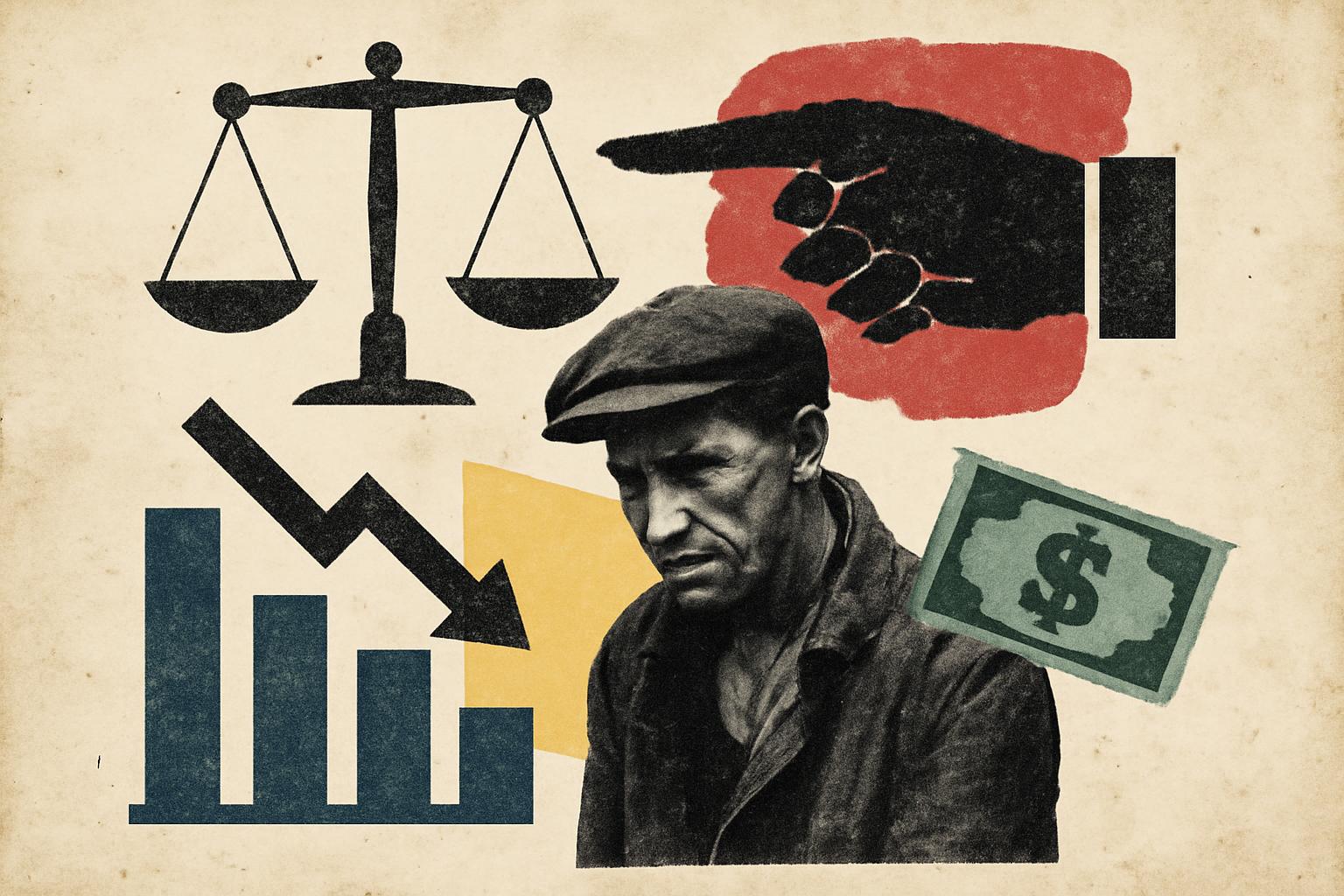the whole affair is a naked display of how the state uses numbers as a cudgel to justify more forceful redistribution. two methods existed, one was dropped from the visible page, and suddenly critics claim a million people vanish from the count. the impulse behind that move is not scientific objectivity but the consolidating of power—how many people qualify for benefits, how big the pool of taxpayers must be, what “poverty” must look like in the ledger that justifies intervention. if the state can choose which numbers to display, it can choose any policy it wants and pretend it followed some higher standard of analysis. this is not science; it is planing by decree.
the justification offered—eu comparability and a more detailed accounting of various income types—reads like the rationalization of central coordination. but as Hayek warned, knowledge is dispersed, tacit, and local. no central technocrat can know enough about every household to design a one-size-fits-all metric that actually captures living standards across a diverse society. to arrange a single, “superior” method for the sake of EU conformity is to subordinate truth to bureaucracy, to substitute a convenient narrative for evidence, and to weaponize statistics in the service of coercive policy.
Nozick would remind us that the state’s very legitimacy rests on the principle of non-coercion and the protection of individual rights. when you redefine poverty by a bureaucratic formula and then tailor the numbers to fit a preferred outcome, you are crossing from measurement into redistribution by force. taxation, funded by the threat of penalties, already erodes autonomy; using a chosen poverty metric to argue for broader welfare entitlements compounds that assault. a metric should serve people’s lives, not justify a larger apparatus that claims superior wisdom and then wields it to seize resources from some to give to others.
Rand would insist that rights are not aggregated by a distant council through “comparability” or “comprehensive” accounting. every person owns the fruits of their labor and should be judged by the objective standard of voluntary exchange, not by a state-defined threshold that reallocates value by fiat. if poverty is real, the remedy is not more central planning but more freedom: education, honest opportunity, protection of property and contract, and voluntary charity that arises from moral choice rather than coercive budgeting. a statistical regime that hides one method and cherry-picks another to justify intervention is the exact opposite of reasoned inquiry and individual responsibility.
what should be done, practically speaking, is to reject the premise that a single official metric can or should govern welfare policy across a polity. publish every method, expose all assumptions, and allow independent, plural analysis. require transparency about how income types are counted and where definitions shift, so that critics can contest and improve the measurement rather than be blocked by a bureaucratic veil. insist on private or decentralized alternatives alongside any public statistic, so that practice can be tested in a real-world, competitive environment rather than dictated from above.
most of all, resist the framing that poverty measurement is a neutral, technical surplus of human knowledge. it is a tool of social power, and like all such tools, it seeks to legitimize coercion by presenting itself as objective. a libertarian view—rooted in Hayek’s warning about dispersed knowledge, Nozick’s defense of rights against coercion, and Rand’s insistence on rational self-interest and voluntary association—says: protect the freedom to live by one’s own means, minimize the state’s reach into how we define and respond to need, and allow human initiative, charity, and experimentation to flourish without a central ledger claiming to know what every life ought to require. in that framework, the controversy over which poverty metric to display is not a triumph of science but a reminder that the state should not be the keeper of truth about human well-being, nor the gatekeeper of the numbers that authorize its coercive reach.
